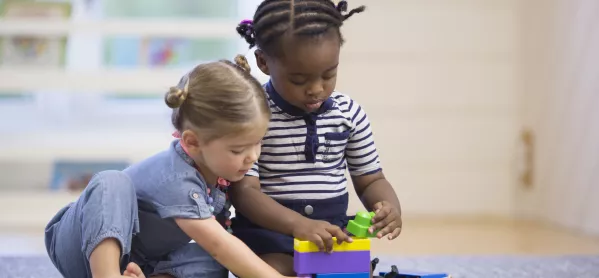Recently I’ve found myself in several conversations with friends (who are all at different stages of life), wondering if they should send their child to a nursery setting before school.
Some people have the decision taken out of their hands due to work commitments, but if every parent had the choice, what would they prefer?
More:
There is a worry among some parents that their children will be lost in a busy classroom and won’t cope. But nursery isn’t about throwing them in at the deep end. It offers small steps towards learning to do things for themselves.
Here are three reasons why what we do in the early years classroom is so important.
1. Developing skills to be school-ready
Research has found that attending high-quality early years education helps prepare young children to be school-ready and more able to take forward their learning when they start school.
Early years settings help children to become independent learners by taking responsibility for their own belongings and finding their named peg, drawer or name label. These things may seem small, but they develop their literacy skills and prepare them to be independent learners at school.
Early years settings also give children opportunities that aren’t achievable in the home environment, not least in the ability to engage with other children far beyond what could be achieved at home.
Through their play, children have the opportunity to develop language and communication, engaging with the variety of other children around them.
2. Building relationships
Within my setting, I have seen the sand pit turn into a building site, where children are encouraging each other to build a tea hut because “My daddy has a tea hut at his work”. Other questions included: “Can you make the concrete and I’ll do the bricks?” and “Shall we drill the sand up together with a drill?”
Here we see children building relationships with each other, using their own experiences from their home environments and extending each other’s play (this particular play continued for more than 30 minutes, showing their engagement and excitement).
From a young age, children begin to solve conflict issues independently, self-regulate and make decisions by themselves, as well as learning to engage others within their play. All of these qualities are nurtured in an early years setting and are used multiple times throughout a day at nursery.
3. Routines
Additionally, children are exposed to a routine similar to a school within an early years setting.
Transitions that may appear insignificant to some - for example, going to another room for lunch, lining up for home time or putting their own lunch box on to the lunch trolley - are all small but significant routines that will ensure that children feel more confident and independent when starting school.
In maintained school nurseries, most of the children within that setting move up to the school, which brings the advantage of friendships and familiar faces, making that first day at school a little less daunting.
Sarah Hennessy is an early years teacher at St Thomas More’s Primary School in Hampshire
